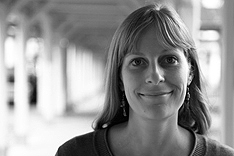Members of the NAR-Kolleg
 Dr. Carmen Grimm - Ethnologin, M.A.
Dr. Carmen Grimm - Ethnologin, M.A.
Network Aging Research
Bergheimer Straße 20
69115 Heidelberg
Fellows: Prof. Dr. Guido Sprenger; Prof. Dr. Cornelia Schweppe
Older person's value – Multiple knowledge models and representational practices in international development Germany / Peru
Concepts about old age and older persons are gaining increasing importance in international development. Due to the presence of demographic change, older persons have become a new target group of global developmental politics during the last couple of years. International organizations such as the United Nations or World Bank are important actors in this field. But developmental non-governmental organizations (NGOs) also increasingly finance projects that aim to support the target group of needy older person in the Global South.
They function as translators (cf. Van Ufford, Latour): On the one hand, they have to make sure to receive funding for developmental projects for older persons. In order to do so, they have to convince donor organizations, politics, and individual donors of the importance and relevance of these projects. Therefore, they refer to generalized assumptions about needs and societal values of older persons in the Global South. They make use of concepts such as „dignity“, „productivity“, and „knowledge“ which stem from a „global“ development discourse, centering around the United Nations and referring to gerontological science. On the other hand, NGOs have to consider local contexts and differences. Without taking into account these aspects, projects could not be implemented.
The dissertation project aims at analyzing how concepts about „older persons“ and „older person’s knowledge“ travel in international development, at which steps transformations of such concepts do take place, and who are the actors who transform them. The field of age-focused development cooperation funded through Germany serves as an example to analyze translational practices of NGOs. My research focuses on a German developmental organization and two of their partner organizations in Peru. Document analyses, participant observations, formal interviews, and informal conversations make up the empirical basis of an anthropological, ethnographic research.
In order to be able to understand transformations of concepts in a holistic and multi-perspective way, research was conducted both in Germany and in Peru. In Germany, representatives of NGOs were interviewed, conferences were visited, and two research stays with a German developmental organization took place. This was extended by two research stays with two Peruvian organizations in 2014 and 2015. The focus on two developmental projects offered the opportunity of comparing two projects that are not only very distinct with regard to duration of the project cooperation, but also with regard to the difficulties they face in their translation practices.
Vita
| 2006 - 2012 | Magisterstudium der Ethnologie, Psychologie und Anglistik an der Ruprecht-Karls-Universität Heidelberg |
| since 9/2012 | Member of the NAR Kolleg, Heidelberg University |


